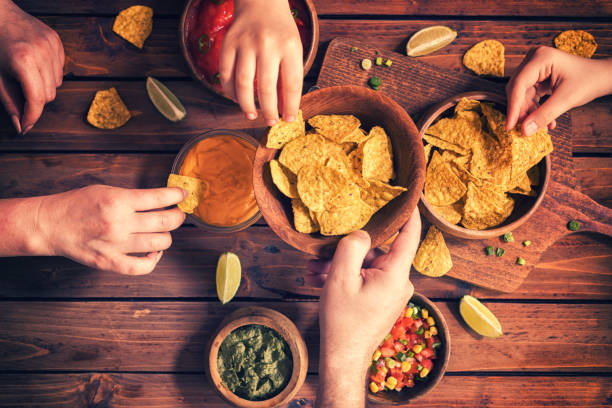The decision of a tortilla chip maker to pull its highly spicy product, marketed as a “One Chip Challenge”, off the shelves of stores following the deaths of an American teenager has brought renewed interest to the popularity as well as the risks of similar challenges marketed by companies and distributed online.
Food challenges with spicy flavors have existed for a long time.
Local competitions to eat chili to the walls of restaurants are renown for the ones who eat more hot food. People from all over the world are admonishing one another to consume spicy foods, and some experts point to the internal anxiety of competing and taking risks.
But highly spicy merchandise developed and promoted solely for the potential challenges – and internet fame is a recent trend that is affecting teens, who are exposed to them due to social media, an associate Professor of Psychology at Florida International University, Elisa Trucco, claims.
One man in Chengdu participates in an eating contest for chili-peppers in Lijiang in China’s Yunnan province in 2016. Photo: AFP
There’s a “glamorisation of these challenges on social media,” Trucco said. “You see a lot of ‘likes’ or comments [indicating] social status or popularity from these challenges, but you don’t see a lot of the negative consequences – like the trips to the ER or other injuries.”
Alexander DePaoli, an associate professor of marketing at Northeastern University in Boston, explained that people could take on discomfort and then share it on social media for the feeling of “in-group belonging,” similar to offline challenges in an opportunity to play a game that is based on truth and dare.
“Hotpot spiciness index”: China uses science to determine the level of spice
A YouTube series dubbed “Hot Ones,” for instance, gained internet fame a few years ago through videos of famous people’s reactions to eating spicy wings.
Restaurants all over the United States continue to offer challenges in person, ranging from chain restaurants Buffalo Wild Wings’ “Blazin’ Challenge” to the “Hell Challenge” of Wing King in Las Vegas.
In both of the challenges, those who are over 18 years old can take a limited amount of wings that are smothered with extra hot sauce for a time frame they choose, not drinking or eating any other food items.
Every Friday, you can find news and information on women who are trailblazers, social issues, and Asian diversity. By entering your details, you agree to receive marketing emails from SCMP. If you do not wish to receive these emails, uncheck here: GET OUR NEWSLETTER.
By registering, you are agreeing to our T&C and Privacy Policy
Chilli pepper eating contests are also routinely organized around the world. The last time they were held, there was a Californian man who consumed 10 Carolina Reaper chilies, which Guinness World Records has named the most delicious chilies in the world, in an unbeatable duration of 33.15 seconds.
A participant in a chili pepper eating contest at Ningxiang within the Chinese province of Hunan province in the year 2018. Photo: AFP
Most of the time, people choose to take part in activities that they have been prepared to do or don’t consider as dangerous. However, a line will be broken when a person is injured, DePaoli noted.
The autopsy results of the secondary student Harris Wolobah are still pending; the teen’s family claims it is the One Chip Challenge that is responsible for the death of Harris Wolobah on September 1.
The product, which Paqui manufactures, instructs users to eat the snack and then see the length of time they are able to survive without having other food or water.
The sales of the chips are mostly driven by people who post videos on social media that show their peers or them taking the contest. The videos show people, which include kids and teens, eating chips and reacting to the temperature. Some videos show people vomiting or coughing and begging for water.
One Chip Challenge products have been removed from shelves. One Chip Challenge products have been taken off the shelves across the US. Photo: AP
After the death of Wolobah, Paqui asked retailers to stop selling the product, and certain health experts have raised the possible hazards of eating such products under certain conditions dependent on the quantity of capsaicin. This component provides chili peppers with their fiery flavor and the ingredients they have.
However, there are plenty of similar products that are still available in stores and online, such as the Red Hot Reaper’s One Chip Challenge, Blazing Foods’ Death Nut Challenge, and Tube of Terror Challenge, in addition to Wilder Toys’ Hot One’s Truth or Dab Sauce game.
DePaoli noted that it’s not uncommon for companies to participate in viral campaigns.
“It is unusual, however, to have something where the brand actually wants you to put something into your body,” he added. The companies “don’t want to be liable for that.”
Despite warnings and labels stating that they are intended for adults only, products could still fall into the hands of people who aren’t aware of the dangers, Trucco added.
“There’s a reason why these challenges are appealing,” she explained. “This type of marketing sells.”

